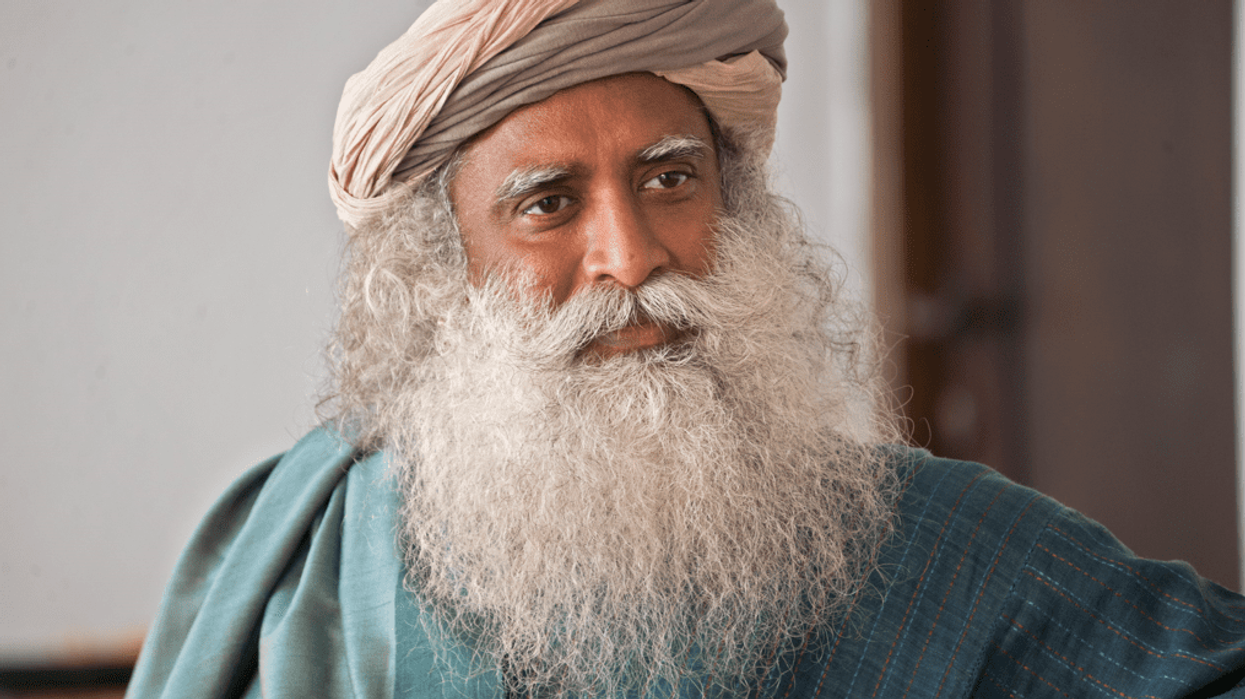THE very fundamentals of spiritual longing are to transcend the limitations of the physical. The most intimate part of physical creation for an individual being is their own body. So the very basis of a spiritual process is to explore the possibilities and go beyond the limitations of the body.
The physical body is designed in such a way that it functions by itself without much of your participation. You don’t have to breathe, you don’t have to make the heart beat or make the liver do all its complex chemistry. Everything that is needed for the physical process to happen, for your physical existence to manifest itself in a proper way, is happening by itself. The physical body is a very self-contained and quite a complete instrument. If you keep it well, you may go through your whole life without ever having a spiritual longing because it is so complete by itself in its own nature. Every little thing you explore in this body is quite incredible. If you are fascinated by gadgets, there is no better gadget.
It takes a certain amount of intelligence and awareness for a person to see the limitations of the fantastic gadget this body is. Gadgetry is fine, the sophistication of mechanism is fine, but still it does not take you anywhere. It just springs out of the earth and gets you back to earth. Isn’t it enough? If you look at it from the perspective of the body, it is quite enough. But a dimension beyond the physical somehow got trapped in this physical. Somehow it was infused into this physical, without which there is no life.
Life is one thing, but the source of life is another thing. In every creature, in every plant, seed, animal, bird and worm, the source of life is functioning. It is just that in a human being, it is functioning with a little more presence. Because of that, all the troubles started. We had to devise these “impossible” yogas. Suddenly, all the simple things or even the wonderful things that the physical offers somehow become irrelevant. Because the fragrance of that which is the source of creation is such that once you get a whiff of it, the fragrance of the physical does not appeal anymore.
If you go by the ways of the body, it knows only self-preservation and procreation. It is incapable of anything else. These are the only two aspects of the body. If you go by the dimension beyond the physical, there is the longing to become boundless. Unfortunately, most of the time, trying to find physical expression to this longing to become boundless leads a man into all kinds of insatiable activity. Do you see? Your body is aching; “enough”
it says, but no, you must go to the top of the mountain and come down, because you always want to be a little more than who you are all the time. This longing is not seeking for
a little more. It is seeking for an ultimate expansion.
Once you get deeply identified with the physical, then these two fundamental forces – the instinct of self-preservation and the longing to become boundless, one which helps you to root yourself well on this planet and another which is supposed to take you beyond – instead of working in collaboration, they unfortunately become a conflict. All the struggles of humanity in terms of “Should I be spiritual or materialistic” are just coming from this ignorance.
Because of this one aspect, a human being is in constant turmoil, in constant struggle between the physical and that which is beyond the physical. This is the only thing which is setting him apart. This is the only thing that puts him in contradiction with the physical. Though he is also physical, though he also has the compulsiveness of the physical, he has the consciousness of not being physical.
All of yoga, every kind of spirituality that you can find, became necessary because of the seeming conflict between the physical and that which belongs to a dimension beyond the physical. I would not really call it a conflict. If one is identified with the physical, then there seems to be a conflict between these two fundamental forces, which make a human being what he is right now. But if one has the necessary awareness to separate the
two, then there is no conflict.
Ranked among the 50 most influential people in India, Sadhguru is a yogi, mystic, visionary and bestselling author. He was honoured with the Padma Vibhushan, India’s highest civilian award, in 2017, for exceptional and distinguished service




